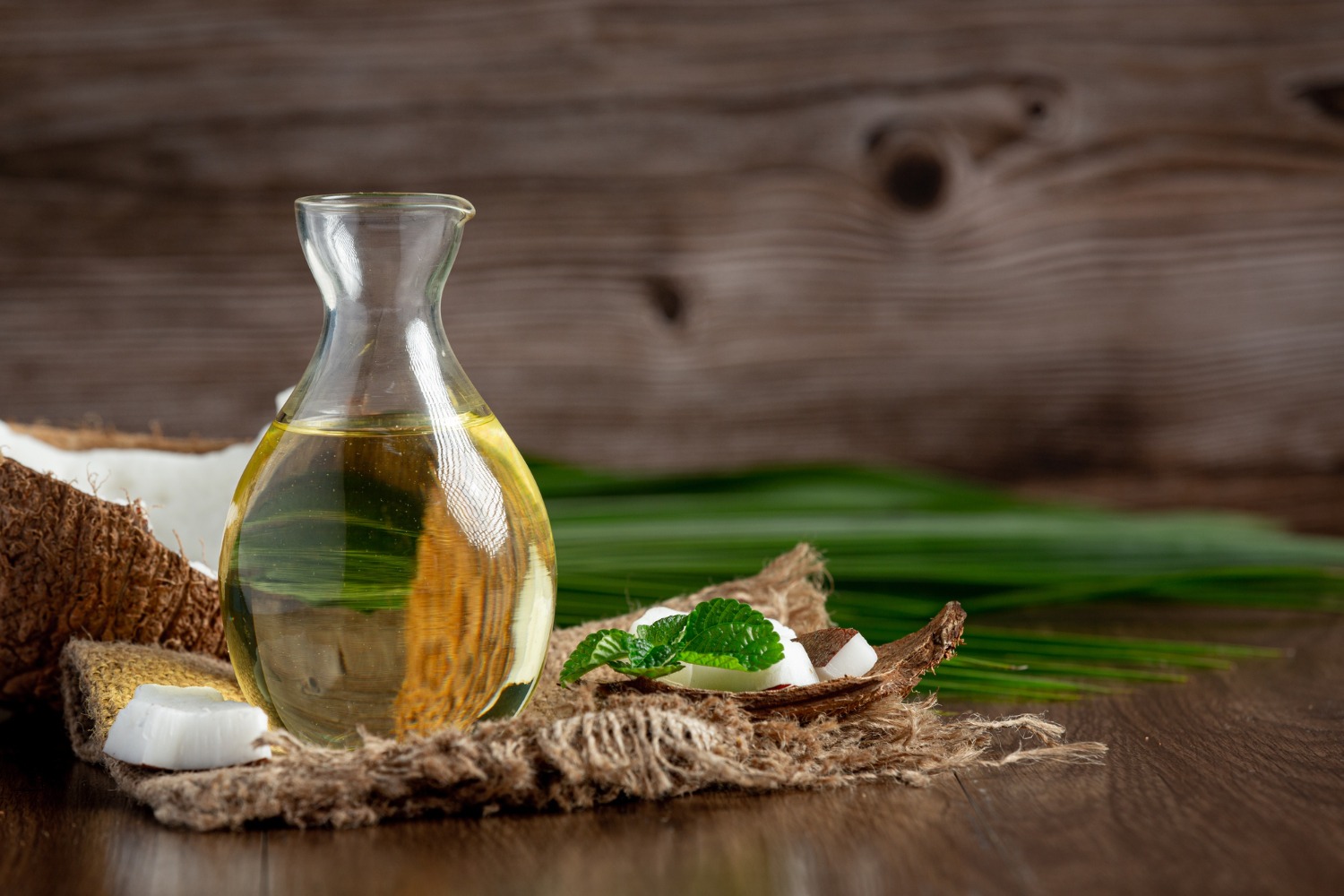Use high quality, organic coconut oil for delicious and healthy baked goods.
Coconut oil is gaining more and more popularity worldwide, considering that it is a versatile natural superfood that has lots of uses in industries varying from bakery to beauty.
Whether or not coconut oil already has a special place in your household, here’s what you should know about the benefits of including it in your diet.
Pure coconut oil is a premium quality non-hydrogenated, non-GMO productwith excellent oxidative stability, it contains no trans fats and no harmful preservatives or coloring, all of these suggesting that it a perfect natural fat to use for cooking, frying and baking or confectionary purposes.
- Coconut oil can be used as a vegan substitute for butter in baking and cooking in an approximate 1:1 ratio. Although it is flexible in terms of usage and measurement, there are some important differences that need to be kept in mind, such as temperature, type, or texture, all of which can affect how a recipe turns out.
When replacing butter or other oils with coconut oil in baking, it’s important to think about moisture. Depending on the recipe, you may need to add some more liquid in order to have the moisture you would normally get from butter. Coconut oil can be used in liquid or solid form, depending on whether you replace hard butter, melted butter or another type of vegetable oil. Temperature is important in determining the best type of coconut oil for your baked goods.
The smoking point of refined coconut oil starts at 400 degrees Fahrenheit, making it a great choice for recipes requiring medium to high temperatures. Unrefined coconut oil works best in low temperature recipes. Virgin coconut oil is the best choice for goods baked at 350 degrees Fahrenheit. Coconut oil is the best oil to use for cooking and frying because it can withstand higher heat than other oils despite being mostly saturated fat.
- One of the reasons coconut oil is growing in popularity is because of its potential health benefits. Coconut oil is primarily derived from a specific type of saturated fat called medium-chain triglycerides. There is evidence that MCTs may help with weight loss by increasing the number of calories you burn. Coconut oil can also be an appetite suppressant. However, factors that contribute to weight loss should not be taken for granted.
Extensive research is needed to confirm possible effects. All-natural, non-GMO coconut oil works perfectly as a vegan butter substitute and can be considered a more health-conscious baking oil, but it is still very high in saturated fat. The MCTs in coconut oil are easily and quickly absorbed by the body and can act similarly to coffee, making them potentially a great source of energy.
Consuming coconut oil temporarily increases energy levels, making it a good alternative for those who are sensitive to caffeine. Coconut oil also contains lots of antioxidants, which have anti-inflammatory, anti-diabetic and brain-protective properties, all of which help prevent disease and promote health.
- Switching from butter or other baking oils to coconut oil should be an easy and seamless transition, but if you’re new to using coconut oil for baking, knowing what to expect can help you avoid unpleasant results. Note that using room temperature or solid coconut oil results in a light, flaky finish, and you can add some extra liquid in order to prevent your baked goods from becoming dry or brittle.
Using coconut oil as a vegan butter substitute in baking enhances the flavor of your recipes and makes the final product lighter and less dense.







